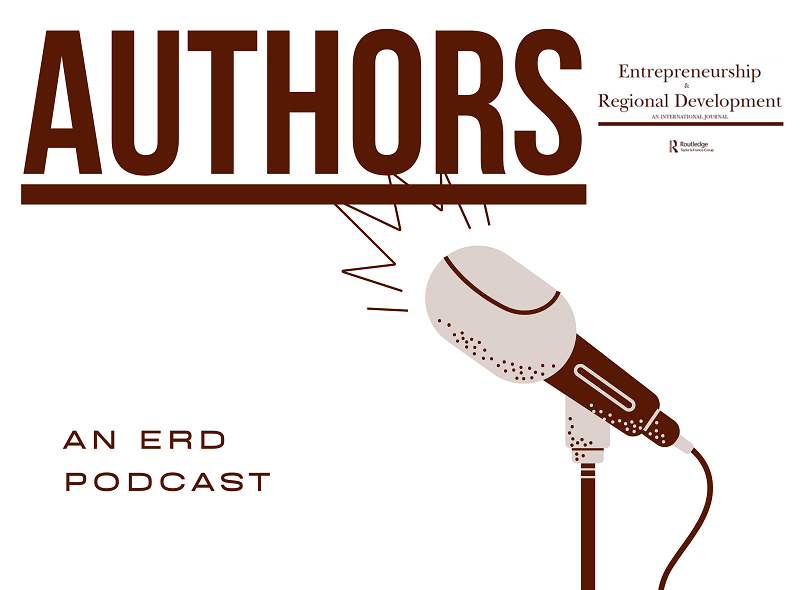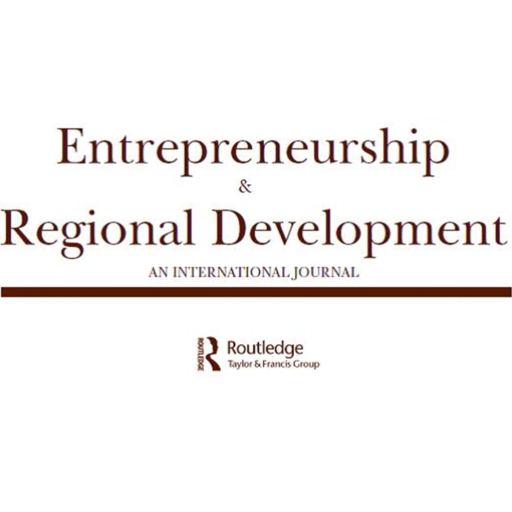Episode 129 – Pauline Brunner – Exploring the construction of social capital within the student entrepreneurship sub-ecosystem
The aim of this article is to show how student entrepreneurs...

 Hosted ByEditorial Board
Hosted ByEditorial Board
This show opens a new path for sharing entrepreneurship scholars contributions to the Entrepreneurship & Regional Development International Journal.
The aim of this article is to show how student entrepreneurs...
Entrepreneurship can be a pathway to emancipation from social constraints and...
Uncertainty, discrimination, and socioeconomic marginalization in host countries lead many refugees...
Rural entrepreneurship scholarship has long underscored the importance of contextual conditions...
Drawing on the entrepreneur-as-poet analogy, I explore the visceral aspect of...
Sustainable entrepreneurs are not only confronted with a ‘liability of newness’...
This study introduces a novel framework that integrates social neuroscience and...
This paper contributes to the senior entrepreneurship and rural entrepreneurship literature...
Using an experimental approach, we examine how gender and feminine adornments...
| Cookie | Duration | Description |
|---|---|---|
| cookielawinfo-checbox-analytics | 11 months | This cookie is set by GDPR Cookie Consent plugin. The cookie is used to store the user consent for the cookies in the category "Analytics". |
| cookielawinfo-checbox-functional | 11 months | The cookie is set by GDPR cookie consent to record the user consent for the cookies in the category "Functional". |
| cookielawinfo-checbox-others | 11 months | This cookie is set by GDPR Cookie Consent plugin. The cookie is used to store the user consent for the cookies in the category "Other. |
| cookielawinfo-checkbox-necessary | 11 months | This cookie is set by GDPR Cookie Consent plugin. The cookies is used to store the user consent for the cookies in the category "Necessary". |
| cookielawinfo-checkbox-performance | 11 months | This cookie is set by GDPR Cookie Consent plugin. The cookie is used to store the user consent for the cookies in the category "Performance". |
| viewed_cookie_policy | 11 months | The cookie is set by the GDPR Cookie Consent plugin and is used to store whether or not user has consented to the use of cookies. It does not store any personal data. |